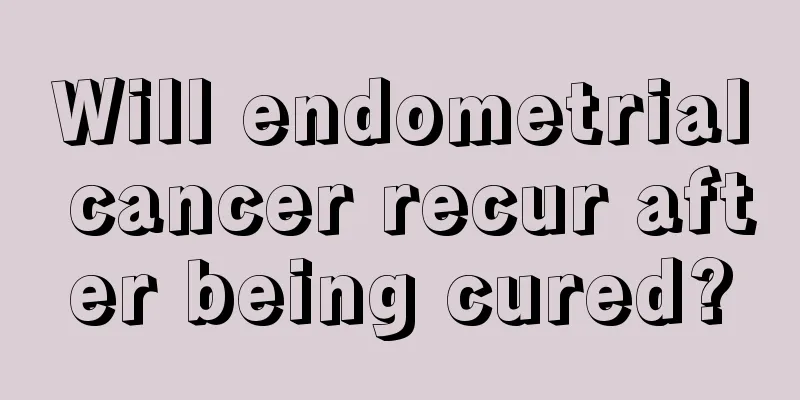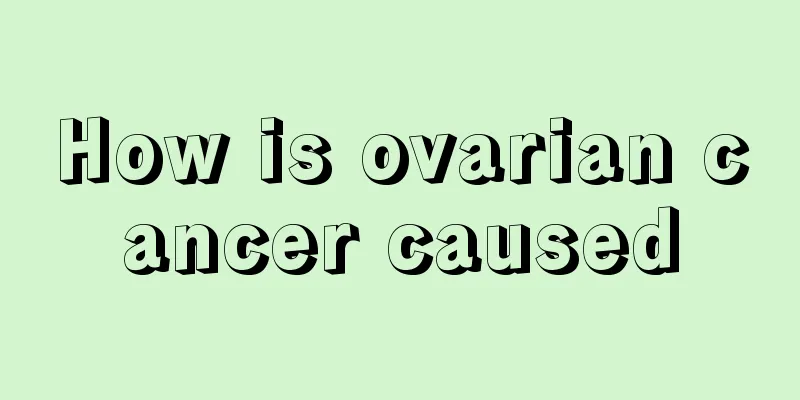Can nasopharyngeal cancer infect pregnant women?

|
Is nasopharyngeal cancer contagious? This is a question many patients ask their doctors. Sometimes many families have multiple nasopharyngeal cancer patients at the same time, which is why some people think nasopharyngeal cancer is contagious. In fact, nasopharyngeal cancer itself is not a source of infection and is not contagious. According to research, most patients with nasopharyngeal cancer carry a virus called Epstein-Barr virus, commonly known as the "kissing virus", which can induce the occurrence of nasopharyngeal cancer. EBV is transmitted through saliva exchange, with kissing being the most common mode of transmission. Other routes of transmission include sneezing, coughing, sharing of utensils and blood transfusions. Infected people will experience headaches, fever, liver enlargement, dehydration and diarrhea. Symptoms generally last for 2 to 4 weeks, but for people with poor immunity, symptoms will last longer. In general, nasopharyngeal carcinoma is not contagious like other germs. It is just that the presence of Epstein-Barr virus can aggravate the induction of nasopharyngeal carcinoma, which does not fundamentally mean that nasopharyngeal carcinoma is contagious. Huang Pei, an expert with special allowance from the State Council, pointed out that the families of nasopharyngeal carcinoma patients should be given more support instead of worrying about the possibility of infection. Nasopharyngeal carcinoma is not contagious. There are concerns about infection. Many families have several nasopharyngeal carcinoma patients. The occurrence of nasopharyngeal carcinoma is also closely related to lifestyle habits. It is very important to maintain a healthy and good lifestyle. The occurrence of nasopharyngeal carcinoma is the result of a combination of factors such as heredity, immunity, carcinogens, and carcinogens. Among them, Epstein-Barr virus is the key factor in causing nasopharyngeal carcinoma. So, how to find out whether you are carrying the virus? You need to do a nasopharyngeal carcinoma virus screening. Draw a drop of blood to find out whether you have Epstein-Barr virus antibodies. If the test result of Epstein-Barr virus antibodies is positive, it means that you may have nasopharyngeal carcinoma and you need to do further nasopharyngeal examination. If the test result is negative, the possibility of the disease is not high. Nasopharyngeal carcinoma is one of the common malignant tumors in my country. It is the most common malignant tumor in the Department of Otorhinolaryngology, accounting for 78.08% of head and neck malignant tumors and 92.99% of upper respiratory tract cancers. Nasopharyngeal carcinoma originates from the nasopharyngeal mucosal epithelium, and has the characteristics of hidden primary site, difficult to be discovered early, poor pathological differentiation, high malignancy, easy to grow invasively and metastasize early. Early detection and early diagnosis are of greater significance to the treatment of this disease. The main treatment for nasopharyngeal carcinoma is radiotherapy, which has a high success rate. However, radiotherapy has many side effects, which can be alleviated by combining with traditional Chinese medicine to achieve the effect of increasing efficacy and reducing toxicity. The modernized product of traditional Chinese medicine, ginsenoside Rh2, has a good auxiliary therapeutic effect, which can directly inhibit the proliferation of cancer cells, induce differentiation and apoptosis of cancer cells, and reduce the side effects of radiotherapy. In general, the question of whether nasopharyngeal cancer is contagious is simple and easy to understand. What we need to know more about is how to prevent and treat nasopharyngeal cancer, and how to detect, diagnose and treat nasopharyngeal cancer at an early stage. Early detection reduces the possibility of recurrence and metastasis. Experts say that cancer recurrence and metastasis are mainly caused by the formation of tumor blood vessels and lymphatic vessels. The Chinese medicine ginsenoside Rh2 can inhibit the formation of tumor blood vessels and lymphatic vessels, thereby reducing the possibility of recurrence and metastasis. In normal times, everyone should change their bad eating habits, such as not eating pickled foods and not smoking. For those living in southern provinces of my country, especially in areas with a high incidence of nasopharyngeal cancer such as the Pearl River Delta, or those with a family history of nasopharyngeal cancer, regular check-ups are also an important preventive method. |
<<: Is the blood of nasopharyngeal cancer patients contagious?
>>: Can nasopharyngeal cancer be transmitted through blood?
Recommend
How is osteosarcoma staged? Severity of osteosarcoma
Osteosarcoma is staged according to its location,...
What are the effects of wild sweet potato vines
Wild sweet potato vine actually has many nickname...
How should colon cancer be treated
Nowadays, many people still think that cancer is ...
Can you "smell" bladder cancer in urine? There are four good ways to prevent it
Bladder cancer is a common tumor. The medical com...
How many days does it take to detect twins?
In the past, when medicine was not well developed...
What are the early symptoms of prostate cancer?
Prostate cancer often occurs in the posterior lob...
How long does it take for the swelling of a prosthetic rhinoplasty to subside? How many days does it take for the swelling of a prosthetic rhinoplasty to subside?
More and more people are pursuing good looks, but...
How to treat prostate cancer? There are four ways to treat prostate cancer
Prostate cancer is very harmful to human health. ...
What are mold hyphae and mold spores?
Fungi are a type of bacteria that can cure diseas...
Alanine aminotransferase 60 is high daily diet
The standard of alanine aminotransferase is 0-40,...
Can abnormalities be seen in gynecological examinations for early cervical cancer?
Early cervical cancer may be detected through gyn...
What are the treatments for arthritis
Arthritis should be a very common disease in our ...
What is Sophora japonica? It actually has such an effect
Sophora japonica is a leguminous plant, also know...
How to remove stains from clothes
If the clothes you wear are light-colored and you...
Is subarachnoid hemorrhage fatal?
Subarachnoid hemorrhage is a common neurological ...









